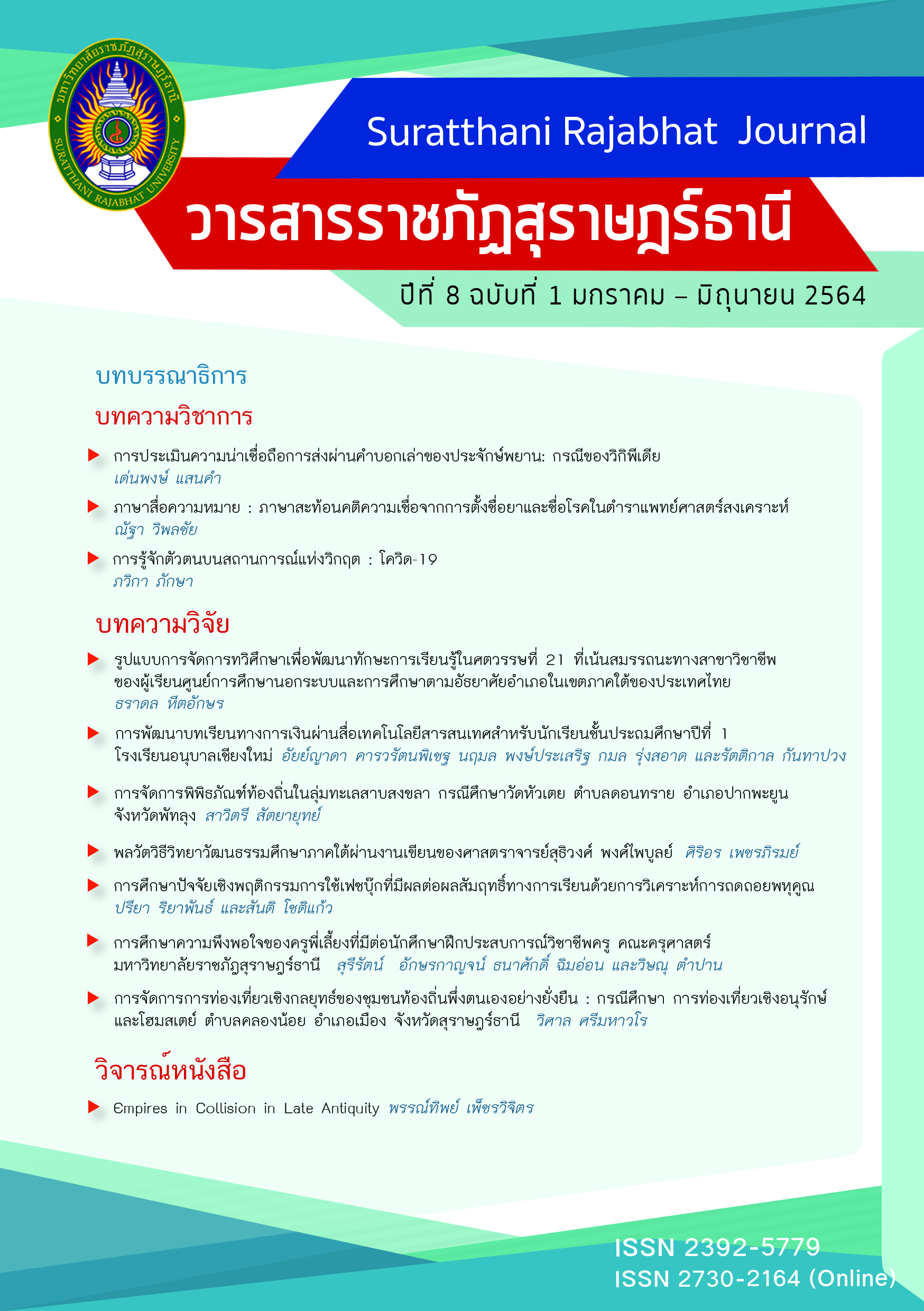Reliability Evaluation Transmission of Testimony: A Case of Wikipedia
Main Article Content
Abstract
The transmission of testimony is concept of social epistemology on testimony. This is concept as interested in transmits knowledge from the speaker (or testifier) to the hearer, or information to receiver. According to generally, the transmission of testimony holds that testimonial knowledge dependence on speaker’s belief. However, Jennifer Lackey (2006b) told that the knowledge transferred from speaker to the hearer does not depend on speaker’s belief. This article, I rely on Lackey’s thesis that is called “Reliability of the Statement-Necessity thesis” (RS-N) for consider transmission of testimony case of Wikipedia. I show that, Wikipedia is transmission of testimonial knowledge to receiver does not have depend on speaker's belief and it also have reliable based on RS-N.
Article Details
References
Black, E. W. (2008). Wikipedia and academic peer review. Information Review, 32(1), 73-88.
Fallis, D. (2008). Toward an epistemology of Wikipedia. Journal of the American Society for Information science and Technology, 59(10), 1662-1674.
Frost-Arnold, K. (2014). Trustworthiness and truth: The epistemic pitfalls of internet accountability. Episteme, 11(1), 63-81.
Gelfert, A. (2014). A Critical Introduction to Testimony. Bloomsbury.
Goldman, A.I. (2011). A Guide to Social Epistemology. In Goldman, A., & Whitcomb, D. (Ed.). Social Epistemology: Essential Readings. (pp. 11 - 37). Oxford University Press.
Keen, A. (2012). Twitterers: Take Responsibility for Your Reckless Claims. CNN.com. http://www.cnn.com/2012/11/27/opinion/twitter-war-keen/index.html
Lackey, J. (1999). Testimonial Knowledge and Transmission. The Philosophical Quarterly, 49(197), 471-490.
Lackey, J. (2006). Introduction. In Lackey, J. & Sosa, E. (Ed.). The Epistemology of Testimony. (pp. 1 – 24). Clarendon Press.
Lackey, J. (2006). Knowing from Testimony. Philosophy Compass, 1(5), 432-448.
Read, B. (2006). Can Wikipedia ever make the grade? Chronicle of Higher Education, 53(10), A31.
Roberts, P., & Peters, M. A. (2011). From Castalia to Wikipedia: openness and closure in knowledge communities. E-Learning and Digital Media, 8(1), 36-46.
Sanger, L. M. (2009). The Fate of Expertise After Wikipedia. Episteme, 6(1), 52-73.
Smart, P., Heersmink, R., & Clowes, R. W. (2017). The Cognitive Ecology of the Internet. In Cowley, S. J. & Vallée-Tourangeau, F. (Ed.). Cognition Beyond the Brain (pp. 251-282). Springer.
Tomaszewski, R., & Karen I, M. (2016). A study of citations to Wikipedia in scholarly publications. Science & Technology Libraries, 35(3), 246-261.
Wray, K. B. (2009). The Epistemic Cultures of Science and Wikipedia: A Comparison. Episteme, 6(1), 38-51.


